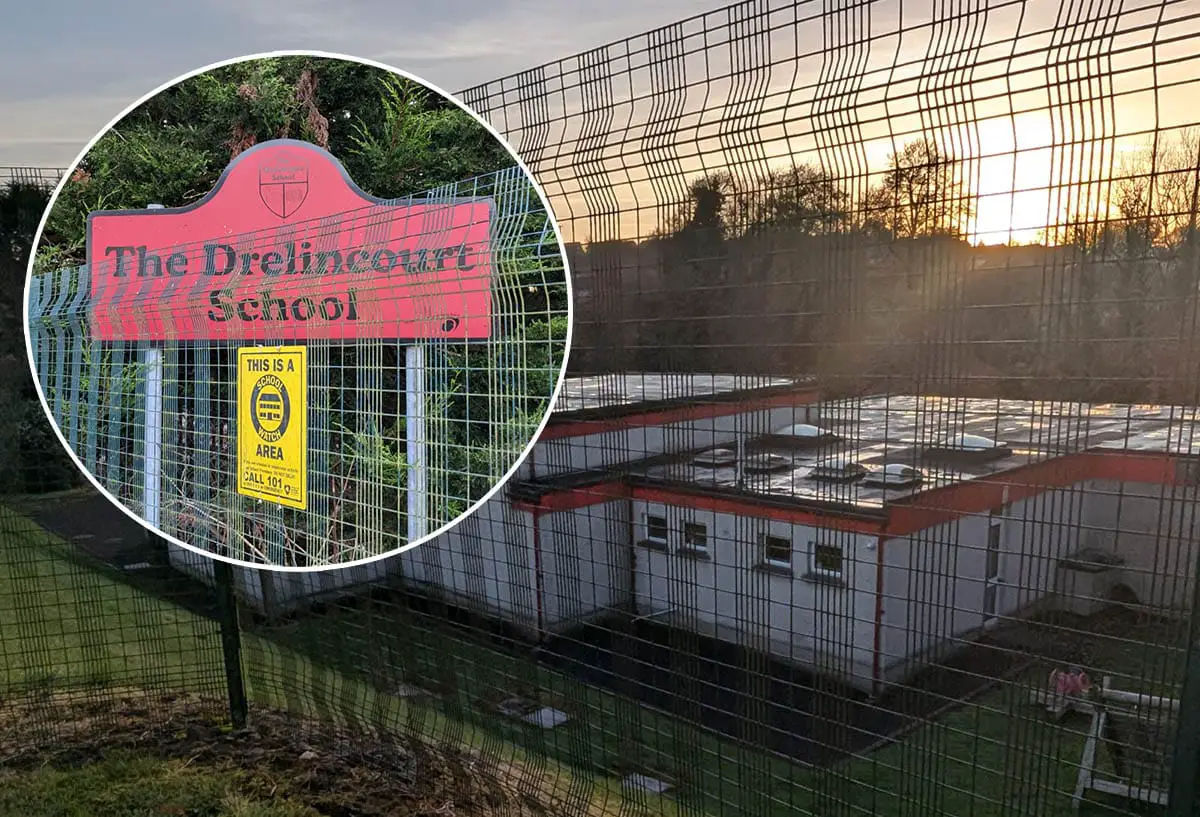
An Armagh primary school – founded in the city almost 300 years ago – will officially close its doors for the final time this summer.
The Drelincourt school, at Ballinahone Avenue, will officially cease operating at the end of the current school year in 2025.
Armagh I first reported – in November 2024 – that the school had been earmarked for potential closure by the Education Authority.
Now that scenario has been formalised – bringing down the curtain on 287 years of education.
The Drelincourt caters for children from Years 1 to 3 and, as a maintained school, is affiliated to the Church of Ireland.
After Year 3, children would transfer to other schools in the area. Previous efforts and appeals by the school to allow children to remain for an extra year – a move which might had improved enrolment numbers – had proved unsuccessful.
Now, the school’s board of governors say they “will be ensuring that the children get the smoothest transition possible to the next stage of their educational journey”.
A Church of Ireland spokesperson told Armagh I: “The Drelincourt School in Armagh has been providing excellent education since its inception in 1738.
“In recent years, the governors have realised that the sustainability of the school has been an issue. With heavy hearts, the process for closure has begun and the Minister of Education has deemed that this will take place in August of this year.
“The school has been fortunate to have an exceptional staff team, many of whom have been part of the school for over 20 years.
“The governors, with the support of the Education Authority, will be working closely with the staff through this difficult time.
“Above all our priority is the children and staff, and governors will be ensuring that the children get the smoothest transition possible to the next stage of their educational journey.”
Efforts were made to keep the school operational as parents highlighted, during the consultation period, the “convenient location” of the school and its “success in teaching newcomer children”.
Governors and staff also expressed opposition to the proposed closure, having considered all the options put forward. While “understanding” issues relating to the “sustainability” of the Drelincourt, they had “overwhelmingly appealed” that it be converted to a school to cater for special educational needs.
According to the consultation documents, the Drelincourt is one of the “oldest surviving endowments of the Church of Ireland in Armagh”.
The consultation papers stated: “The enrolment in the school has fluctuated over recent years and stands currently at nine children; this includes just under 80% of children whose first language is other than English for whom the education provided at Drelincourt has been very successful.”
It states that the “number of pupils attending the school in recent years has been below the school enrolment number”, which is currently approved at 58.
In 2018/19, the number attending stood at 28. This dropped in the subsequent four years to 19, 17 and 6, before increasing to 12 last year (2022/23), and decreasing again to the current nine.
The rationale behind the proposal explains that the Drelincourt has been operating for a number of years below enrolment allocations.
And it adds: “While the staff continue to work professionally to provide a quality educational experience for the children, most of whom in recent years have been from newcomer families, it is recognised that the challenges of operating the school and providing for the children within an increasingly strained resource context is a challenge in the current climate.
“Given the need to provide equitable access to necessary resources for the education of the children and seeking to have regard to responsible use of public finance, it is the Board of Governors who remain keen to explore the possibility of the building becoming an element of the SEN provision for the Armagh area.
“Governors have engaged with the Education Authority who have agreed to conduct a feasibility study on possible use of the building as part of local SEN provision, should the Development Proposal be approved.
“We understand that in a ‘demand led’ discipline such as special needs provision there will inevitably be a much greater need for SEN places than currently exists.”
The Board of Governors believe that the education of the children currently enrolled at the school would be “detrimentally impacted by being dispersed to larger schools at this stage in their educational and social development”.
Various options had been looked at and ruled out with this term now being officially the last in its long and storied history.



